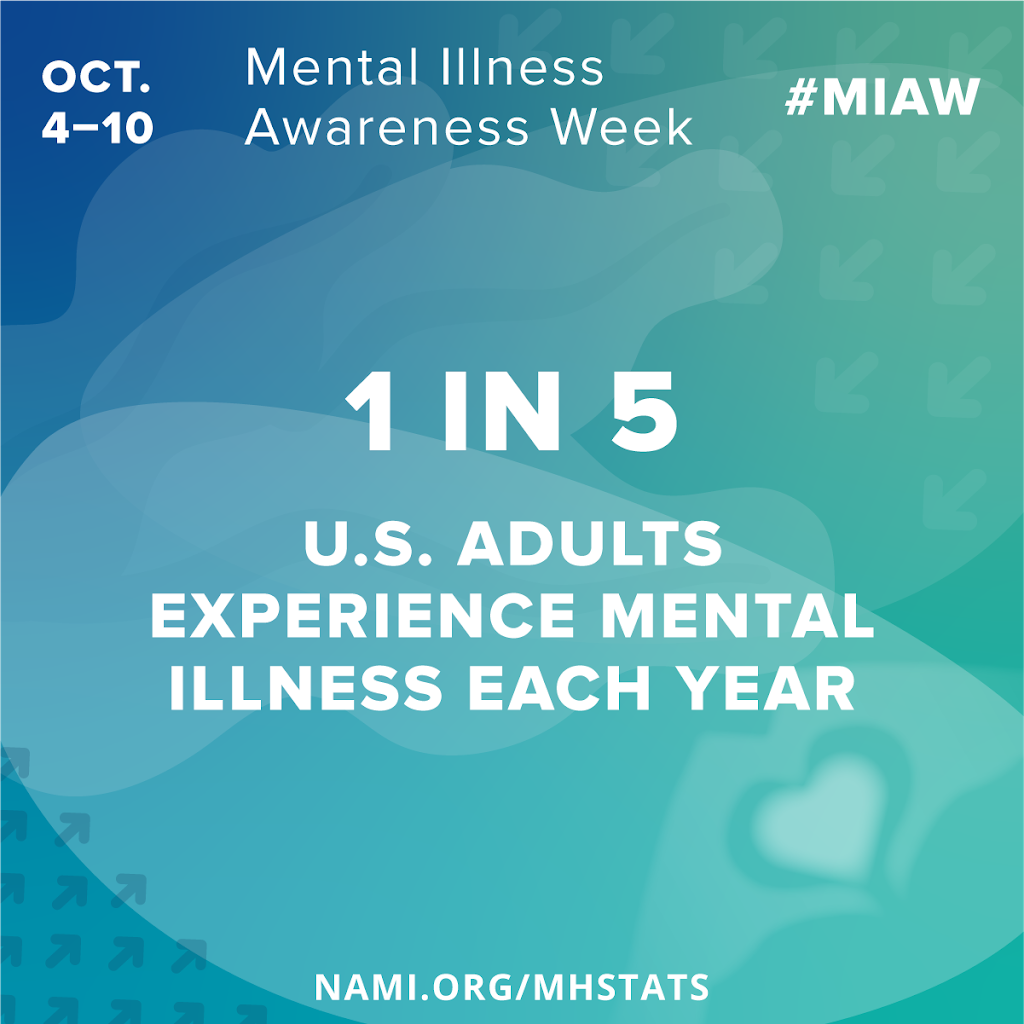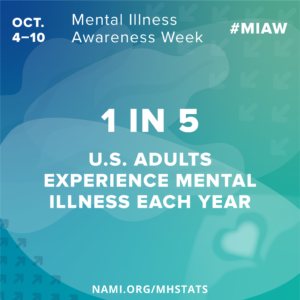This year has been challenging for hundreds of millions of people across the globe. Even those who have not been directly affected by COVID-19 can still struggle with issues beneath the surface. The pandemic’s mental health impact will likely be lasting, and it’s crucial that we have open and honest discussions about mental illness. Otherwise, individuals will suffer in darkness.
Last month, we wrote about addiction, mental illness, and suicide at length. Our readers may remember that September was both National Recovery Month as well as Suicide Prevention Awareness Month. At HVRC, the above topics are of particular importance, as we specialize in the treatment of addiction and co-occurring mental health disorders.
September has come and gone, but the conversation about mental illness must continue year-round. We cannot forget that one-fifth of American adults face the reality of mental health concerns each year. We must also remember that mental health disorders are treatable, and that stigma needs no longer stand in the way of recovery.
An open and honest dialogue about conditions like major depressive and post-traumatic stress disorder (PTSD) erodes stigma and inspires people to seek help. Recovery is possible with professional assistance; it’s vital to spread the message. In honor of Mental Illness Awareness Week 2020 (MIAW), the National Alliance on Mental Illness (NAMI) shares that:
“We believe that mental health conditions are important to discuss year-round, but highlighting them during Mental Illness Awareness Week provides a dedicated time for mental health advocates across the country to come together as one unified voice.”
Mental Illness Awareness Week
Acknowledging the reach and prevalence of mental illness is the first step in fighting stigma. Mental health disorders affect members of every community and practically each family. NAMI points out the annual scope of mental illness:
- Anxiety Disorders: 19.1% (estimated 48 million people)
- PTSD: 7.2% (17.7 million people)
- Post-traumatic Stress Disorder or PTSD: 3.6% (estimated 9 million people)
- Bipolar Disorder: 2.8% (estimated 7 million people)
- Borderline Personality Disorder: 1.4% (estimated 3.5 million people)
- Obsessive Compulsive Disorder: 1.2% (estimated 3 million people)
- Schizophrenia: less than 1% (estimated 1.5 million people)
Mental Illness Awareness Week 2020 begins Sunday, October 4, and ends on the 10th. Throughout the week, you are encouraged to share the facts on mental health disorders. You can also take part in the You Are Not Alone campaign. NAMI shares stories from people who are living with mental illness with the public. Such experiences serve as a beacon of hope for the tens of millions who are still struggling.
“NAMI continues our year-long awareness campaign, You Are Not Alone, to feature the stories of people affected by mental illness to fight stigma, inspire others and educate the broader public. Now more than ever, the mental health community must come together and show that no one is ever really alone. No one should be without the information, support, connection and help they need.”
Those in recovery who are not ready to share their personal story with the world can still fight stigma and inspire others. NAMI has created social media graphics and logo files to be shared. The organization has drafted targeted messaging that can be used in social media posts, such as:
Mental health is a huge part of overall health and should be a priority for everyone, whether you have a mental health condition or not. #MentalIllnessAwarenessWeek #MIAW
The salient dates to remember next week include:
- Tuesday, October 6: National Day of Prayer for Mental Illness Recovery and Understanding
- Thursday Oct. 8: National Depression Screening Day
- Saturday Oct. 10: World Mental Health Day
- Saturday Oct. 10: NAMIWalks National Day of Hope
Trauma and PTSD Treatment
Hemet Valley Recovery Center is here for men and women who are struggling with addiction and co-occurring PTSD. Many first-responders have a challenging time coping with trauma in a healthy way. Some turn to drugs and alcohol to cope with what they experience.
Please contact HVRC during Mental Illness Awareness Week if you would like help beginning a journey of recovery. We invite you to take the first step toward healing with our dedicated team of professionals.



